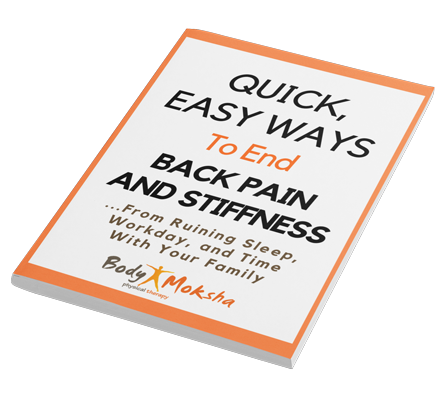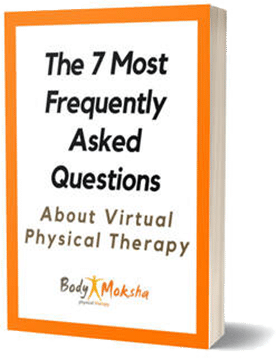Unless you’re gifted with extraordinary medical abilities, you probably can’t immediately tell the difference between a pulled muscles or something else. Hey, let’s face it, most people aren’t doctors. Not everyone can instinctively tell where their pains are coming from. And, if you’re reading this post, my guess is that you might be one the ones who struggle a little. The good news is, though, it’s absolutely normal not to know the cause of your pain; both people who suffer from sudden, fleeting pain, as well as those who experience ongoing, chronic pain, are often dumbfounded as to its cause. More often than not, though, people jump to the conclusion that they’ve pulled muscles. The effects of this type of ill-informed opinion can be life-changing, and that is why we’re about to expose the hidden answers behind what it means to have a pulled muscles, and whether or not something completely different might be going on. […]
What are pulled muscles, actually?
This is a good question, and it is the best place to start on your journey to discovering the true source of your pain. Remember, if you have an informed understanding of your ailment, you’ll be able to heal the source and permanently eradicated the pain. With that in mind, here is some information about what pulled muscles actually are and whether or not you have one of them, or, something completely different:
- Pulled muscles are muscles which are forcibly stretched and pulled beyond their capabilities. In other words, a pulled muscle is the result of a forceful movement exerted on that muscle. Take an elastic band as an example: as the band is stretched beyond its elastic means, it will eventually knot up or snap. This is exactly what happens to a muscle under the same conditions; a pulled muscle is the painful result of forced overextension.
- Alright, so how do you damage your muscles in this way? The most common activities leading up to pulled muscles include overuse, improper form during workouts, a failure to warm up and down before and after exercise, and skipping over stretching routines. Muscles need to be primed for exercise, and if this crucial step is neglected, they tend to be less flexible and more prone to damage and pain.
- That’s all good and well, but how can you then tell if you pulled a muscle or if you’ve done something else? Well, the biggest distinction between a pulled muscle and a different source of pain is the fact that your flexibility is limited after you hurt yourself. Essentially, this means you struggle to bend, stretch, or generally move the muscle. The muscle is tight and sore. In addition, you may experience swelling in the pulled area. You’ll most likely also experience stiffness and weakness in the muscle following the damage and, eventually, (if you don’t receive treatment for the correct diagnosis) you’ll become ‘knotted up’ in the area around the muscle as a greater amount of muscular tissue succumbs to stiffness and overuse.
Here’s the problem, though: you may be experiencing all this and yet you’re still unsure whether you have a pulled muscle, or something else like, for example, a structural issue or pinched nerve.
Luckily, there is a way to tell. Pinched nerves, in particular, effect different areas of the body and produce different sensations. Take a look:
What is a pinched nerve?
- Unlike a pulled muscle, a pinched nerve occurs when the body tissue around a nerve applies too much pressure to it. In other words, a pinched nerve has nothing to do with stretching or pulling: it is, in fact, the restriction of the nerve by its surrounding tissues and muscles. Let’s use another metaphor: a garden hose. Running through the garden hose is water vital for the plants in the garden. In the same way, your nerves carry vital information about the condition of your body to your brain. Let’s take it a step further: when the garden hose bends or is pinched, the water runs out and the plants suffer. Similarly, when the tissues around a nerve impede its ability to function correctly, the body is effected and you feel pain.
- Now, you may be thinking, ‘sure, but how is this pain different from a pulled muscle?’ First of all, the origin of the pain is different: discomfort from a pulled nerve is traced back to the nerves themselves, all of which are found inside the cartilage, tendons, bones, and muscles of the body. It is not the muscle which is sore, it is the actual nerve. Furthermore, the symptoms of a pulled nerve are different from pulled muscles, in that one may experience tingling, numbness, sudden bouts of weakness, burning sensations, and an increase of discomfort when trying to sleep.
Both pulled muscles and pinched nerves are painful; they both decrease mobility and increase suffering, yet it is absolutely vital to understand that these two problems are treated very differently. The biggest mistake most people make is that they muddle the two, thereby exacerbating the pain and prolonging the healing process.
The thing is, if your discomfort goes untreated – or is treated incorrectly – you risk prolonged bed rest, extended periods off of work, a decrease in activity and mobility, weight gain, muscle weakness, and daily, extreme discomfort. None of these sound particularly appealing and, if you’re reading this, it’s most likely that you’ve already experienced one or more of these results. It’s time to take action.
So, if you’re unsure why you are experiencing pain, you feel as though you’re not getting any better, or you’re at the end of your tether when it comes to finding the right kind of help, then we invite you to give us a call, right now. Physical therapy offers you the chance to find and heal the true cause of your pain, thereby allowing you to access the pain-free life you deserve. Why not try it today? Click the button below to speak to a specialist, right now. We look forward to hearing from you.



